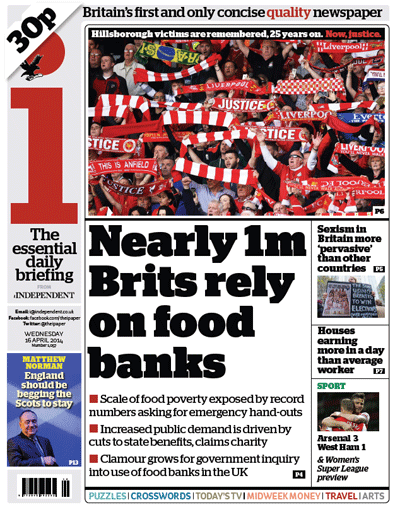i Editor’s Letter: Britain isn't the most sexist country in the world

Your support helps us to tell the story
From reproductive rights to climate change to Big Tech, The Independent is on the ground when the story is developing. Whether it's investigating the financials of Elon Musk's pro-Trump PAC or producing our latest documentary, 'The A Word', which shines a light on the American women fighting for reproductive rights, we know how important it is to parse out the facts from the messaging.
At such a critical moment in US history, we need reporters on the ground. Your donation allows us to keep sending journalists to speak to both sides of the story.
The Independent is trusted by Americans across the entire political spectrum. And unlike many other quality news outlets, we choose not to lock Americans out of our reporting and analysis with paywalls. We believe quality journalism should be available to everyone, paid for by those who can afford it.
Your support makes all the difference.
Of course Britain is not the world’s most sexist country. But then that wasn’t what the UN special rapporteur on violence against women said yesterday, as she concluded her fortnight-long inspection of the UK. What Rashida Manjoo actually reported was that sexism is “more visible” in Britain than in other countries she has visited, which include Algeria, Somalia, Jordan, Azerbaijan and India. Still, quite a claim.
Not a claim, though, that should be dismissed out of hand – despite the sights offered by alternative package tours that might take in, say, Saudi Arabia (where women are banned from driving), Afghanistan (extra-judicial executions for adultery), Guinea (near-universal female genital mutilation) or the United States (no paid maternity leave).
Ms Manjoo was concerned by what she saw as “pervasive” sexualisation of women and girls in British media and advertising, by sexual bullying and harassment in schools, the disproportionate impact upon women of public spending cuts, and the justice system routinely failing victims of violence.
We are global leaders in public health, tolerance, science, technology, finance, philanthropy and learning – but not in equal opportunities for the 51 per cent of our population born with ovaries. A country that has so few women in high political office or in Parliament, with so few running its biggest companies, has little room for complacency. Aside from the unfairness, we’re squandering the talents of a huge part of our population.
Reacting to yesterday’s UN claims, Laura Bates, who runs the superb Everyday Sexism project, pointed out that it is not only the responsibility of government to tackle sexist culture. She added: “We still have gender inequality in the UK, yet we are so quick to point the finger at other countries and suggest women here are equal.”
Join our commenting forum
Join thought-provoking conversations, follow other Independent readers and see their replies
Comments